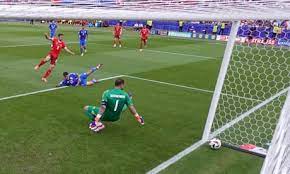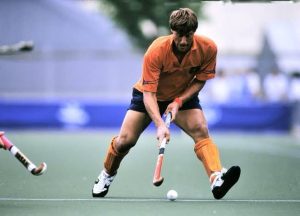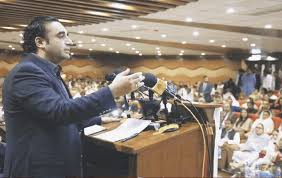Italy begin inquest after suffering embarrassing Euros elimination

Berlin: Berlin, the city where they won a World Cup in 2006, has a special place in Italy’s footballing imagination. The prospect of returning for a last-16 tie at Euro 2024 was so thrilling it caused one commentator to trip over his tongue. Fabio Caressa, whose breathless repetition of “goal by [Fabio] Grosso!” became almost as iconic as that player’s semi-final strike 18 years ago, spluttered for a moment after Mattia Zaccagni’s equaliser against Croatia on Monday and briefly was unable to speak.
Caressa had no such trouble finding his words, on Saturday night, after the Azzurri were eliminated by a 2-0 defeat to Switzerland. “The way we played tonight was unacceptable,” said Caressa during a post-match discussion on the Italian broadcaster Sky Sport. “We have to be able to say that. This match was unwatchable … this is not the level of our national team.”
His thoughts were echoed across Sunday morning’s newspapers. The front page of Il Corriere dello Sport lamented “An Embarrassment”, with a subhead describing the national team as “incapable of football”. Tuttosport called it a “National Failure”, while La Gazzetta dello Sport went with “Everything to Rebuild”.
The only disagreements regarded who should take charge of the reconstruction. Luciano Spalletti made clear during his post-game press conference that he would like to continue, highlighting the fact he had only been in charge of the national team for 10 games leading up to this tournament.
Yet his stated intention to seek out players better suited to his vision for football landed poorly with some of his audience. “The good tailor cuts a suit to fit their client,” wrote La Gazzetta’s Luigi Garlando. “They do not impose one upon them.”
Even beyond Italy’s poor performance on the pitch, Spalletti’s interactions with the press this week have led some to question whether he has the right temperament to lead the national team. He made a 2am phone call to apologise to one journalist on Tuesday after using crude language while accusing them of leaking information from the changing room.
“Anyone who has followed Luciano Spalletti’s adventure from the start knows how much passion he has put into the cause,” wrote Garlando in the same piece. “Maybe it was even too much love that caused him to make so many mistakes.”
Italy’s starting XI to face Switzerland featured six changes from the team that drew with Croatia. Some of those were forced, with centre-back Riccardo Calafiori serving a suspension and left-back Federico Dimarco ruled out by injury. Others, such as the choice to include Stephan El Shaarawy ahead of Zaccagni, were harder to fathom.
Spalletti cited player fatigue as a reason for Italy’s underwhelming performances in the group stage, yet drafted in Bryan Cristante and Gianluca Mancini, each of whom reached a half-century of games (mostly starts) for Roma this season. Nicolò Fagioli’s legs were fresher, but the choice to include a player who had started one competitive game since completing a seven-month suspension was bold for more obvious reasons.
Not that Spalletti was the only one to draw criticism. Back in the Sky Sport studio, the former Juventus and England manager Fabio Capello pointed to Italy’s shallow talent pool, saying: “I think Spalletti overvalued the squad. He had ideas and he wanted to play a certain way, but this is the quality of players we have. This is the dynamism they are capable of. If Italian clubs are going far in European competitions, it’s because we are helped by foreign players.”
For Italian audiences, this felt like Groundhog Day. Discussions about the need to overhaul systems for nurturing young talent have been stuck on repeat since at least 2010, when the Azzurri, defending champions then too, exited the World Cup at the group stage and Arrigo Sacchi was appointed as technical coordinator to oversee the national youth teams. He left the job in 2014 citing “too much stress”.
The outlook is not all bleak. Italy won the men’s Under-19 Euros in Malta last summer and some players from that team, such as the Fiorentina right-back Michael Kayode, have started to make top-flight breakthroughs. Injury deprived Spalletti of several talented young players, including Tottenham’s Destiny Udogie and Atalanta’s Giorgio Scalvini.
Yet the failure to qualify for consecutive World Cups, coupled with this dismal exit against Switzerland, leave a nation with difficult questions to answer. Italy did not win the last European Championship by accident – form and fortune come into every tournament success, but it bears remembering that they constructed a world record 37-game unbeaten run under Roberto Mancini. They also finished top of a Nations League group featuring England, Germany and Hungary a year later.
Has the landscape changed so unrecognisably since then? Or was this summer’s catastrophe more the result of a manager who lost his way? There were encouraging elements to the tournament-opening win over Albania, but every match after that felt like a step either backwards or at best sideways.
The only thing everyone could agree was that Saturday represented a new low. “In 18 years of commentating on the national team,” said Caressa, “I’ve never seen a match as bad as this.”





